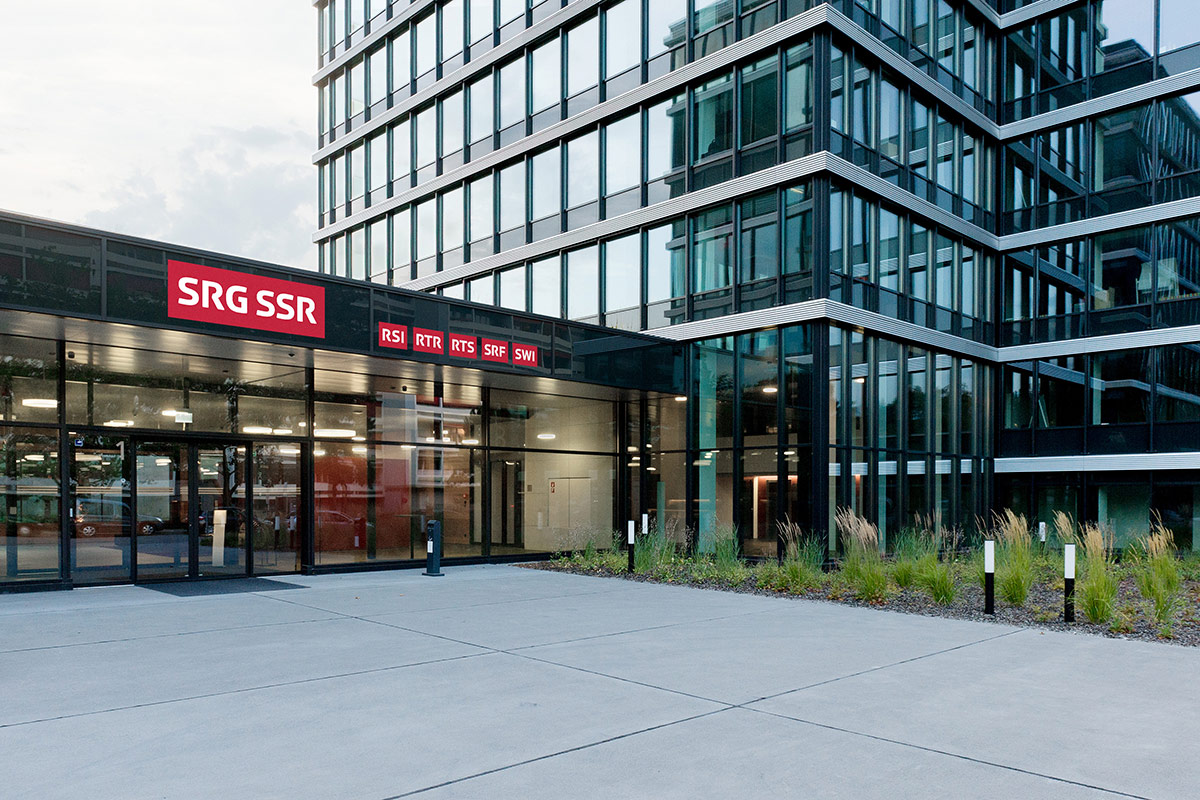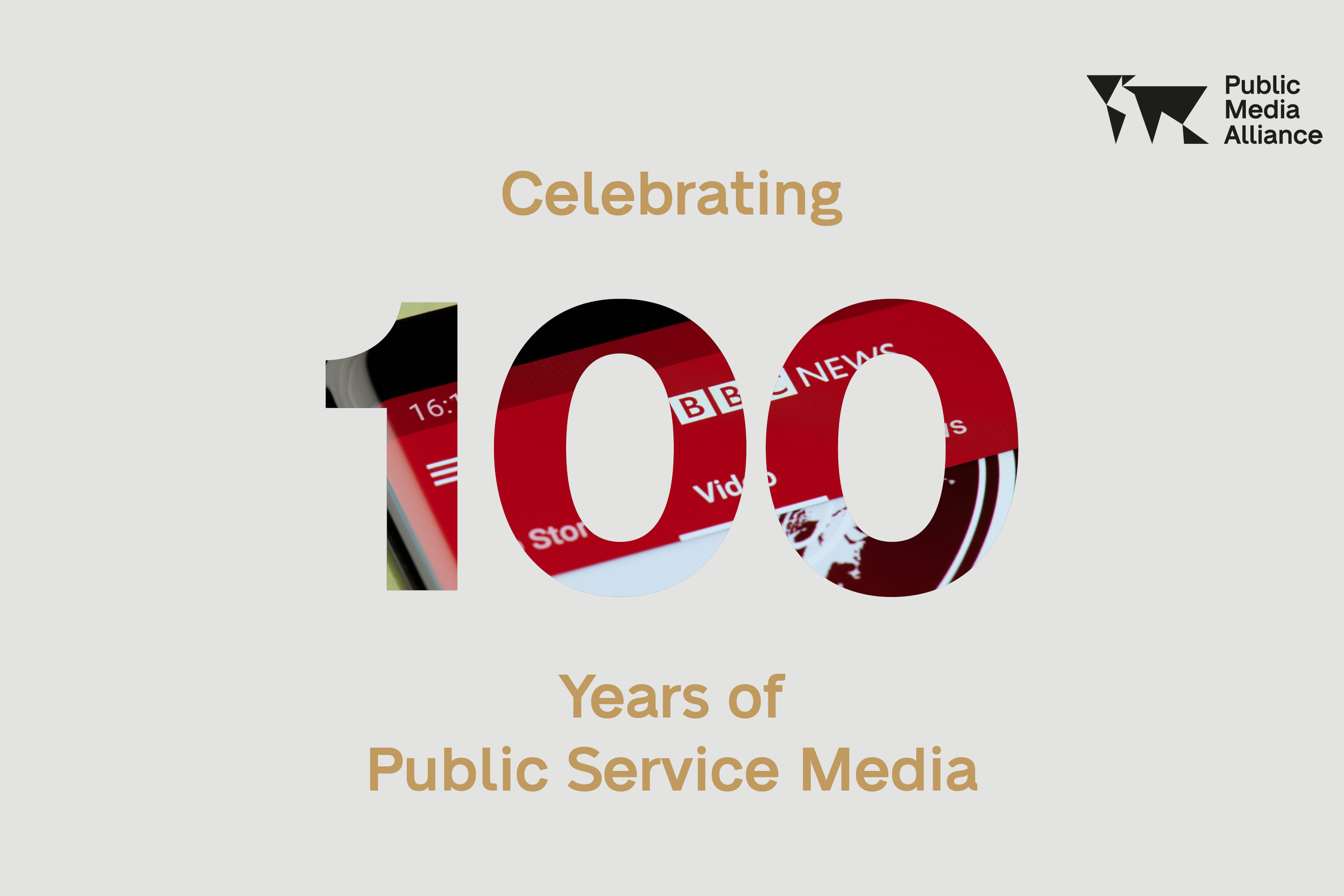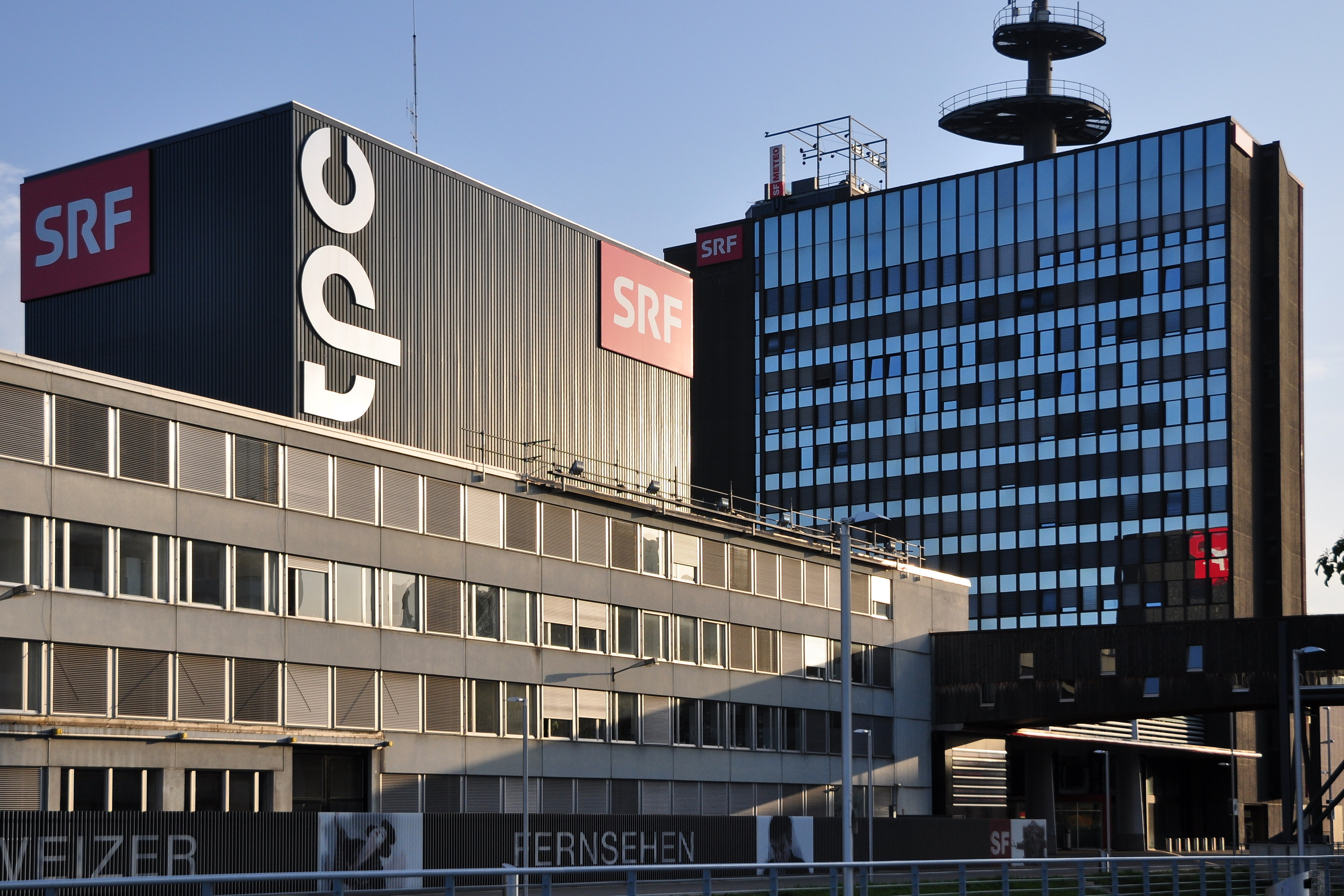INSIGHT
Media and democracy: an inseparable and heckled couple
26th October 2022
The Director-General of SRG SSR, Gilles Marchand, outlines how the challenges facing the media industry present a challenge to democracy.

“I plead for us to consider information as a common good,” said Gilles Marchand, the Director-General of the Swiss public broadcaster, SRG SSR, during his keynote address at the special week on democracy in Geneva on 4 October.
In his speech, printed in full below, Mr. Marchand outlined how critical challenges to the media are presenting a challenge for democracy.
“Both sources of funding, commercial and public, are being challenged today”. Funding is indeed an enormous challenge for public interest media organisations, both private and public, and contributes to the enormous pressure the media ecosystem is currently experiencing. As Mr. Marchand explained, it is being exacerbated by factors beyond the control of the Swiss public.
For example, globalisation has brought national media companies into competition with global streaming giants, inflating the market. Digitisation has created conflict between print and audio-visual media, “which are all on the same online territory”, having historically worked in different formats.
Read more: 100 Years of Radio in Switzerland | Le radio a 100 ans en Suisse
Ultimately, Mr. Marchand noted there is a fragility about the media at the moment. Commercial advertising is moving to digital platforms, and public funding is being questioned in many countries in Europe. “We are thus engaged in a rather dangerous spiral”.
In the meantime, audiences have turned away from the media and trust in the media has declined. “We observe a growing lack of understanding of the world, anxiety about the future, the search for simplistic answers, and finally a marked intolerance to uncertainty, doubts, and options.”
All of this has presented a challenge to democracy. But Mr. Marchand called for unity and a common acceptance that information is critical for democracy. The provision of information and a public space to process them is imperative for citizens to make informed decisions.
So what next? “Quality information, a fundamental good of the 21st century, is the responsibility of the community, in whatever form it may take.
“Together we must find solutions to coexist with the other media, which is in the clear interest of the Swiss population.”
Keynote given by Gilles Marchand on 4 October during the special week on democracy organised by the Geneva Centre for Philanthropy, SwissFoundations, the Geneva Graduate Institute and the Albert Hirschmann Centre on Democracy.
What we are dealing with here are two related and obviously very important issues: the state of democratic society and the health of the media… which influence the health of our democracy!
Media funding is an increasingly complicated issue for private media and is increasingly debated for public media.
The financing of the media guarantees its stability and thus its professional quality.
I know, it is almost impossible to define this notion of quality. For there are as many criteria for quality as there are people who claim to have it…
But one thing at least is certain. Without relatively stable funding, the media result is poor.
Without the means, time, journalists, training, and verification, it is guaranteed to drift sooner or later. Media scum and noise take over.
But stable funding for the media is not just about information.
In Switzerland, we often make the mistake of limiting the debate on media to journalistic production, to information.
Stable funding also allows for original production, production that is anchored in the population for which it is intended.
I am talking here about documentary films, fiction, artistic and sports footage, or musical productions.
This immense media field is a huge provider of shared identity, of common destinies. It is particularly important in multicultural and multilingual countries like Switzerland.
There are two main sources of media funding:
- The first comes from commercial revenues, from the sale of content, in every conceivable form, or from advertising revenues, also in every conceivable form. The creativity of private media in this regard is quite extraordinary. To the point that it is not possible anymore to always identify the precise origin of the commercial revenue. But that is a different issue which would take us too far away from our current topic.
- The second major source of funding is public, in the form of a licence fee or direct state funding, this public financing enables the public service to exist.
The licence fee, as we know in Switzerland, is not very popular, because it is compulsory and not linked to a specific use of the programmes.
The licence fee, which finances a system of solidarity between programme genres and between linguistic regions, is a rather complex construction.
It’s a bit like the roads which we don’t use all the time, the schools which we
still fund even when our children have grown up, or the hospitals that we fortunately don’t need every day.
The universal licence fee is a demanding system. And in a system of direct democracy that allows to regularly challenge it, true and mature citizenship is required.
In 2018, the Swiss population showed their maturity, with more than 70% rejecting a popular initiative aimed at eliminating the licence fee.
Direct financing through the state budget is certainly easier, but it raises the question of independence in the light of possible political pressures.
Certainly, the licence fee does not offer absolute protection, but direct financing considerably increases the risk.
The state budget is voted on every year in parliament. Therefore, political parties could very well be tempted to have the budget accepted depending on journalistic coverage.
Furthermore, this model poses the risk of anticipation and self-censorship, conscious or not, by the editorships.
What makes the issue particularly interesting and relevant, is that both sources of funding, commercial and public, are being challenged today.
Therefore, new approaches are increasingly underlined in the debates, namely philanthropy and patronage.
***
However, before exploring these new sources, it is important to first give a brief sociological overview, as the media are only the expression of the society in which they operate.
Between two major crises marked by health, climate, energy and social issues, our societies are evolving along several major movements.
Our societies are becoming globalised, digitalised, more complex and more fragile at the same time.
Unfortunately, globalisation is not quite the one we had dreamed of during the Age of Enlightenment. For alongside knowledge, it also brings its own set of social, political, cultural and climatic problems.
Digitisation is inevitable, as we know. Of course, it allows real progress in many areas.
But it also brings innumerable challenges, particularly in terms of protection of privacy, social exclusion, and control. Not to mention the mental fragmentation of individuals dependent on their mobile screens.
Complexity is the interdependence of actions. Today, everything acts on everything. So much so that it is difficult to observe and understand the whole.
As a result, the major socio-political issues are now only debated in terms of personal feelings or sectoral factors.
Systemic analysis has become discouraging, too complicated, almost inaccessible.
Yet, as we know, the addition of particularisms is not enough to give a common meaning.
This is the core of the challenges of European construction.
Fragility is a consequence of the first three trends and comes from generalised short-termism.
It also stems from the major socio-demographic equations that are already posing and will continue to pose major economic problems. The financing of pensions and health care are perfect examples of this phenomenon.
To these uncertainties, we must add various socio-cultural developments, such as the development of part-time work and the new balance between professional and private life, which are changing the value of “work”, the very foundation of industrial society.
As we can see, globalisation, digitisation, complexity and fragility are totally interconnected.
These major societal trends apply almost 1:1 to the media.
Globalisation brings us back, for example, to the international streaming platforms and their world culture, to the giants of technological entertainment, or to the new players such as telephone operators (Sunrise and Swisscom in Switzerland), which in the field of sport are blowing up the market of broadcasting rights.
Digitisation is omnipresent in the media world. It brings us the progressive end of linear consumption of programmes in favour of individual, personalised, mobile consultations.
Digitisation also brings the gradual end of paper, the end of the physical relationship with the media object.
And finally, this digitisation inflames the war between print and audio-visual media, which are all on the same online territory, after decades of rather peaceful coexistence, each happily cultivating its own little fenced garden.
Complexity, for the media, seems to be the new rule. It must be said that in addition to new competition, changes in usage, political and commercial challenges, we still have to deal with the total interdependence between editorial design, technical manufacturing, and multi-vector distribution.
In the media value chain, it is no longer possible to distinguish between design, manufacture and distribution.
Finally, fragility, which concerns all media. Media business models are very precarious. Commercial advertising is migrating to international digital platforms that do not reinvest, or only marginally, in local markets.
The free culture is developing rapidly in the digital world, after having been launched by the free newspapers themselves, it should be remembered.
As for public funding, it is being questioned in one way or another throughout Europe.
And this precariousness is accentuated by the fact that the historical media are easily bypassed and circumvented. By social networks or by brands which in turn become a kind of media.
We are thus engaged in a rather dangerous spiral.
The scattering of audiences, fragmented by digitisation, leads to the scattering of audiences, which in turn leads to the scattering of advertising.
In Switzerland, however, advertising has played a major role in the development of a diversified and multilingual media offering.
And it deserves credit for this.
In Switzerland, the critical mass, i.e., the number of readers, listeners or viewers, is not enough to finance the production of content.
Moreover, in the new digital society, people prefer to pay for access, for the connection, rather than for the content itself.
The dissociation between distribution and content is a real paradigm shift.
This provokes two reactions amongst the media groups:
The first is the active search for diversification of activities. Therefore, many press groups have successfully invested in online services and sales platforms.
But regarding reinvestment of the profits generated in journalistic or programmatic production, it has to be noted that it is not automatic…
The second reaction is the frantic search for attention. Today, a new media economy of attention is developing.
We have to make noise, arouse interest, hold attention for a few seconds. Sometimes at the cost of the relevance of the information. And at the risk of favouring more and more trash and clash.
Which then leads to a drop in credibility and therefore in media legitimacy.
It’s the perfect trap!
The plot was carefully prepared: the incredible technological revolution in the media.
Digitisation and globalisation bring immateriality. Products and tools are less and less tangible.
This digitisation also brings the quest for and collection of data.
Today, we need to register, to log in, to access, to comment, to be recommended such and such content and to facilitate our consumption in a world totally saturated with all kinds of media offers.
By registering, by logging in, we deposit our data, some more detailed than others, which becomes an asset that is all the more precious as traditional advertising revenue evaporates.
This is because data is used for direct marketing.
This unfortunate data is therefore sold, resold, exchanged, combined and consolidated.
This raises very specific ethical and legal questions. In addition, regulations differ from country to country, while data itself happily crosses borders.
And finally, as we all know, the line between recommendation and commercial or political manipulation is very thin.
Which brings us right back to our “media-financing-democracy” troika!
The shift from news to echo, the risk of loss of real or supposed value, is causing citizens to lose their trust in the media.
In this movement, the contribution of the media to democracy is questioned.
And this ultimately weakens the desire to buy content, as well as the acceptance of fees.

These major movements also have consequences for democratic society, for the way we live together.
- Globalisation gives rise to an unpleasant feeling of powerlessness, because the sovereignty of decision making, both at personal and collective level, is increasingly part of a kind of co-decision at the level of global, intangible and apparently inaccessible structures
- Digitisation and the advent of the “à la carte” society present the risk of generating ignorance, through an excess of mental pointillism and social fragmentation.
- Complexity brings perplexity, the inability to decide and the resulting frustration.
- As for fragility, it leads to immobility. As our great-grandmothers used to say, “One bird in the hand is worth two in the bush”.
The result of all this, as far as we are concerned, is the atomisation of media society, with the risk of erasing references and losing the general interest.
At the same time, on the public side, we observe a growing lack of understanding of the world, anxiety about the future, the search for simplistic answers, and finally a marked intolerance to uncertainty, doubts and options.
One look at the comments and other posts on social networks is enough to see the extent of the phenomenon…
We can note three major feverish outbreaks:
- First, the rise of “egocracy”, a concept I borrowed from the political scientist François Chérix, as a perfectly dangerous counterpoint to democracy. Here, my opinion, my emotion, my feeling, are the And the institutions are at my personal service, otherwise they have no reason to exist…
- Then the rise of new forms of communitarianism. They can be virtual, like the followers or members of my network, who become like cousins, brothers or sisters. They can also be religious or nationalistic.
- Finally, the rise of populism, with the classic opposition between a people presented as homogeneous, innocent and victims of oppressive elites that are never really defined, but which must be brought down.
Let’s admit it, this observation is not very pleasing!
Even more so if we consider that the general, shared interest is the goal of any democratic society. Here, we cannot say that we are making much progress in this direction.
The consecutive crises mentioned above, war tensions, the shift from progressive democracy to protesting democracy, all lead to the emergence of increasingly authoritarian regimes.
So, is there a way out?
… Or at least ways to reverse the trend, and what is the role of the media in this perspective?
I plead for us to consider information as a common good, that society must ensure the sustainability of.
Individualism, the rise of sectoral demands, the multiplication of intransigent minorities, which sees each group defending its own interests, are crumbling the social body.
The main challenge is to maintain a social and reasonable link between the individuals who make up this social body.
In an atomised society, the danger is that the general interest will weaken or even disappear.
Especially if everyone tends to make his or her respect for the institutions conditional on the satisfaction of personal expectations.
However, the general interest cannot be reduced to the sum of individual interests. On the contrary, it is defined by the overcoming of individualisms by a global vision and the search for the common good.
The risk is that the common denominator in our globalised and digital societies is now simply the desire to protest.
However, society cannot function without a consensus forming a common project. It needs compromises, shared visions, solidarity, to transcend contradictions and produce meaning, as well as good management.
Our democracy is based on the free will of citizens, who exercise their rights within a common and accepted framework.
But this cannot develop without the knowledge and examination of the facts and ideas that move and shape society.
In other words, there is no democracy without information and without a public space to process it. These two elements are paramount to its survival.
But it is no longer enough to structure debates by means of relevant arguments transmitted through traditional channels.
It is no longer enough for institutions to speak out for them to be heard.
On the contrary, never has there been so little trust in any kind of authoritative speech. Never has mass manipulation been so easy and powerful.
This is exactly why, in the ferment of digital flows, information is becoming a fundamental good of the 21st century.
It would be very useful for the human sciences to take up this topic and work on modelling the possible definition of information as a “common good”.
As we have seen with the analysis of the financial situation of the media, this new democratic equation, in which information is becoming a vital commodity, has an unknown factor: the economic capacity of the media to provide it.
The question of how to finance this vital function has been hotly debated.
It is true that the public authority, the state, has always been concerned with ensuring the overall framework conditions for the proper functioning of institutions.
But in the current structural crisis described above, it can be observed that democracy is not an immanent reality, and the free will of citizens can evaporate in the new societal behaviours.
Clear media support, accompanied by a mechanism of rights but also of duties, is therefore important, particularly to be able to produce content, anchored in local markets but able to resist the digital revolution and its global champions, and to then make them accessible to all.
All of the above-mentioned social-cultural phenomena affect Switzerland in a particularly strong way.
Direct democracy, the consensual system, the variable and subtle geometries between powers and counter-powers, territorial fragmentation and multiculturalism require a strong, reasonable political agora, fed with quality information.
Switzerland, a nation of wills, must be able to come together and reach consensus.
If, in addition to its natural fragmentations, Switzerland adds those of digital atomisation, without giving strong answers, it risks paralysis through excessive division.
It would then evolve towards a self-locking direct democracy.
The media issue is therefore paramount today, more than ever.
Unfortunately, the sector is riven by many conflicts as a result of the economic tensions mentioned above.
But worse is still to come.
Tensions and rivalries between interest groups, private and public players, linguistic regions, liberal or regulated worldviews, prevent us from meeting the challenges.
Quality information, a fundamental good of the 21st century, is the responsibility of the community, in whatever form it may take.
Together we must find solutions to coexist with the other media, which is in the clear interest of the Swiss population.
These solutions must be compatible with the fundamental purposes of public and private media:
- Public service: absolute requirement to be able to continue to address all audiences, wherever they are, with all the subjects that interest them.
- Private media: the equally legitimate need to generate commercial profits in order to reinvest them in whole or in part into the media value chain.
This coexistence is even more difficult in Switzerland, which is a small territory with several small markets that cannot be combined into one.
In my view, this is precisely the reason why the logic of subsidiarity, according to which the public service could only offer what the private media are unwilling or unable to do, is not appliable in Switzerland.
It would lead to different public services:
- A reduced public service in German-speaking Switzerland, where there are a few small commercial alternatives.
- A comprehensive public service in French-speaking Switzerland, Ticino and Graubünden, where the market is too weak to substitute.
The very purpose of public service is to offer the same services between the regions and for all citizens of this country.
Is it realistic to think that we could offer a quality daily newscast to our 300,000 Ticino citizens or to keep our fourth language, Romansh, alive with RTR without the financial solidarity of the German-speaking region?
No.
We must find other ways of coexisting within the Swiss media community.
Especially since some programme areas, particularly culture, offer no real possibility of refinancing in the small Swiss market.
And yet, we need national cultural production, as it is what defines us and brings us together, beyond our diversities.
Not only do we need cultural production but also cultural dissemination. And access to it, in the broadest sense, must not be restricted or conditioned by payment mechanisms that exclude certain audiences.
And in order to guarantee this universal access, the public authority must commit itself.
So, despite the difficult situation between public funding and commercial revenues, there are new solutions to explore.
Philanthropy is one of them, undoubtedly. In various forms.
And I find it particularly interesting to note that this third way can act at both local and international levels.
Therefore, it is very important to better understand the criteria according to which one media service is eligible and to fully grasp the direct or indirect aim of this support.
Let me conclude by wishing that this aim be a common one, beyond the media battles.
Tomorrow morning, the fate of democracies will depend on their capacity to produce and circulate quality information that allows for dense, certainly controversial, but also enlightened debate.
Related Posts
18th October 2022
100 Years of PSM: Messages from PMA’s members & supporters
Watch and read messages from PMA's…
13th October 2022
Swiss public broadcaster joins the Public Media Alliance
"It is essential to strengthen links…
20th May 2022
SRG SSR’s Director General on Public media and direct democracy
“The fate of democracies will depend on…

